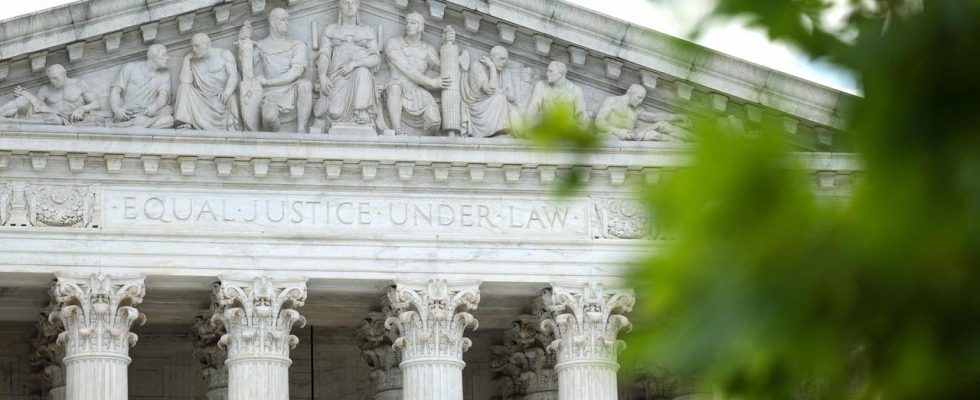Republicans in the US state of North Carolina wanted to redraw their constituency boundaries. The Supreme Court rejected that. His verdict could have a signal effect on elections across the country.
The verdict has been eagerly awaited in the USA – and has brought relief, especially to Democrats. But not just for Democrats. Former federal judge Michael Luttig, known for being more conservative than liberal, called the court decision on National Public Radio a resounding, overwhelming victory for American democracy.
In fact, the Supreme Court’s decision was about whether state legislatures can rule on electoral law issues without review by the courts. So: do “checks and balances” still apply – the mutual control of the individual constitutional bodies? Former Attorney General Neal Katyal argued in the case as counsel before the Supreme Court.
Referring to the North Carolina Republicans who brought the case to the US Supreme Court, Katyal said after the MSNBC decision, “They wanted to undermine our system of checks and balances and empower state legislatures to do elections whatever they want. I can’t think of anything more un-American.” Katyal emphasized that the constitution is clearly above politics.
Judge argues with choice clause
The trigger for the case was in North Carolina. There, under Republican leadership, the parliament had made changes to the constituencies in order to improve the result for their own party. The Democrats, on the other hand, went to court in North Carolina – successfully. The Republicans then took the case to the Supreme Court – arguing that the North Carolina court had no authority to declare the constituency illegal.
This attitude is based on a legal theory that only the state legislatures can decide on electoral laws or the shape of constituencies. The theory has many supporters, especially among supporters of ex-President Donald Trump.
The Supreme Court opposed the controversial legal theory by a vote of six to three. Commenting on the ruling, Chief Justice John Roberts wrote: The election clause does not protect state legislatures from normal state judicial review.
Chaotic consequences feared in advance
Joan Biskupic, legal expert at CNN television, spoke of a remarkable verdict. Especially since it looked as if some judges of the conservative Supreme Court were at least open to this theory, according to Biskupic. She explained: Had the Supreme Court ruled the theory constitutional, the consequences could have been chaotic. An attitude that many experts had feared, especially with a view to the presidential election next year. There was great concern that, among other things, constituencies could be manipulated.
Ex-US President Barack Obama, who does not often comment on court decisions, tweeted with relief that the Supreme Court had rejected the outlandish theory. The approach threatened to turn democracy on its head.

